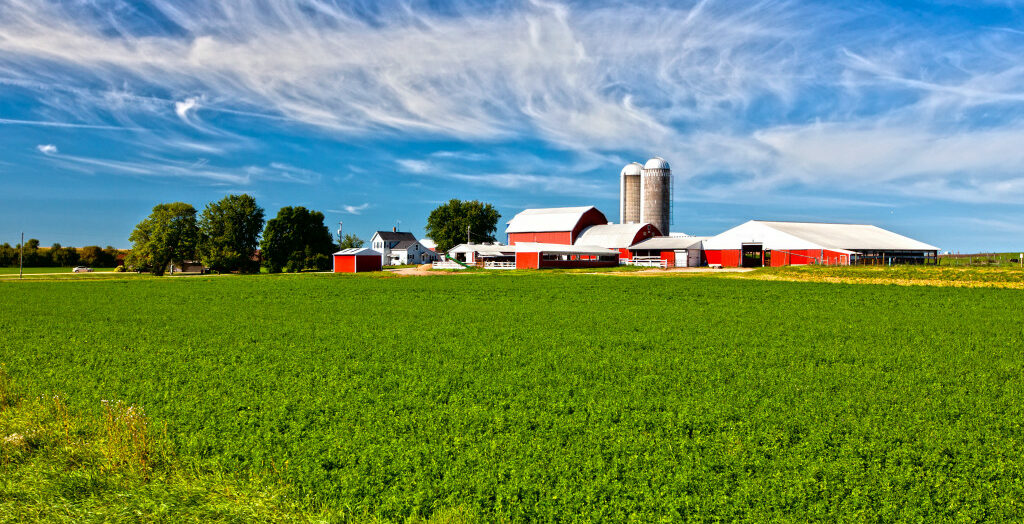- Setting up a water well for irrigation is cost-effective and eco-conscious. Seek out the best water well drillers.
- Understanding and implementing crop rotation will help improve soil health and reduce the need for chemical fertilizers and other pesticides.
- Rely on organic farming practices to produce pesticide-free food, which has become increasingly attractive to potential customers.
- Investing in renewable energy sources such as solar panels or wind turbines will help reduce your carbon footprint.
- Optimizing your supply chain by streamlining processes, technology, and sustainable suppliers will enable you to maximize profits.
Are you an aspiring farmer or agribusiness owner who wants to build a sustainable farm business? With a rapidly changing world and increasing demand for organic, pesticide-free food, it’s no surprise that sustainable farm businesses are on the rise. But how exactly do you create a sustainable farm business?
From setting up a water well to learning about crop rotation, several factors should be considered when building a sustainable farm business. In this blog, you will learn tips to help you create a sustainable farm business that is both profitable and eco-conscious.
Set up a water well.
Water supply is one of the most important things to consider when creating a sustainable farm business. Setting up a water well for irrigation is cost-effective and efficient. By using groundwater, you are reducing your dependence on municipal or other sources of water that may be subject to periodic shortages or higher costs. Using sustainable water supply measures can save you a considerable amount of money and add to the eco-friendliness of the farm.
Additionally, you should consider employing the help of experts in water well drilling. They can provide you with advice on the best practices for finding, accessing, and utilizing groundwater in your area. They can help you to ensure that your water well is constructed in a way that will provide you with the most efficient and cost-effective access to groundwater.
Understand the importance of crop rotation.
Crop rotation is the practice of planting different crops on a piece of land each year to enhance soil health and reduce the likelihood of weeds, pests, and diseases. Crop rotation increases soil health and promotes natural biodiversity, which can increase pollination and reduce the need for chemical fertilizers and other pesticides. Additionally, crop rotation can help improve the quality of the food you grow, leading to more sales.
Rely on organic farming practices.

Organic farming is the practice of using only natural, pesticide-free materials in the cultivation of crops. This helps protect the environment and reduce pollution and can lead to higher profits.
People are increasingly becoming conscious of organic food and supporting farmers who rely on organic farming practices. So, switching to organic farming can make your farm more accessible and visible to potential customers.
Build a smart energy infrastructure.
When building a sustainable farm business, ensuring your energy sources are eco-friendly is important. Invest in solar panels or wind turbines to generate renewable energy. This not only helps reduce your farm’s carbon footprint but can also be cost-effective in the long run. By modernizing your energy infrastructure, you can increase productivity and lower operational and maintenance costs for your farm.
Supply chain optimization.
When creating a sustainable farm business, it’s important to optimize your supply chain. This looks at the entire production process to eliminate inefficiencies and waste. The optimization of the supply chain enables you to produce and sell your products at a lower cost than your competitors while reducing your carbon footprint. Here are the steps you need to take to ensure your supply chain is optimized for sustainability.
Streamline processes
Look for ways to reduce waste and make the production process more efficient, such as introducing automated systems or using renewable energy sources. Additionally, look for ways to reduce packaging and transportation costs.
Invest in technology

Leverage technology to track inputs and outputs from the farm, monitor trends, and identify potential areas of improvement. You can also use technology to find new customers and build relationships with them.
Partner with sustainable suppliers
Choose suppliers that are aligned with your values and those of sustainability. Partnering with suppliers who practice sustainable and ethical production processes will help you create a more positive brand image.
Track progress
Keep track of your sustainability initiatives, such as energy efficiency measures and waste reduction, to ensure you are on track with your goals. This will enable you to make improvements where necessary and to better monitor the impact of your efforts.
By optimizing your supply chain, you can maximize your profit margins while minimizing your environmental impact.
Creating a sustainable farm business is no easy task, but with the right strategies in place, it can be highly rewarding. With the tips discussed in this blog in mind, there’s nothing stopping you from creating an environmentally friendly and successful farm business!






